Related Research Articles
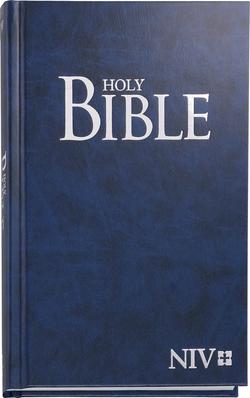
The New International Version (NIV) is a translation of the Bible into contemporary English. Published by Biblica, the complete NIV was released in 1978 with a minor revision in 1984 and a major revision in 2011. The NIV relies on recently-published critical editions of the original Hebrew, Aramaic, and Greek texts.
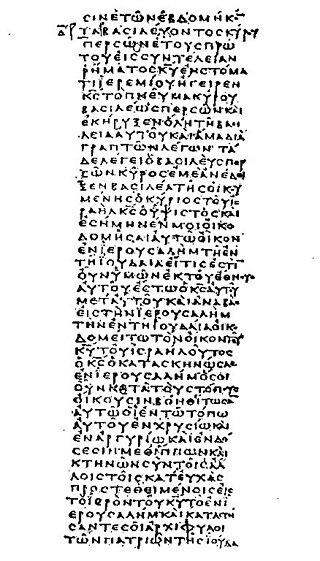
The Septuagint, sometimes referred to as the Greek Old Testament or The Translation of the Seventy, and often abbreviated as LXX, is the earliest extant Greek translation of the Hebrew Bible from the original Hebrew. The full Greek title derives from the story recorded in the Letter of Aristeas to Philocrates that "the laws of the Jews" were translated into the Greek language at the request of Ptolemy II Philadelphus by seventy-two Hebrew translators—six from each of the Twelve Tribes of Israel.

Today's New International Version (TNIV) is an English translation of the Bible which was developed by the Committee on Bible Translation (CBT). The CBT also developed the New International Version (NIV) in the 1970s. The TNIV is based on the NIV. It is explicitly Protestant like its predecessor; the deuterocanonical books are not part of this translation. The TNIV New Testament was published in March 2002. The complete Bible was published in February 2005. The rights to the text are owned by Biblica. Zondervan published the TNIV in North America. Hodder & Stoughton published the TNIV in the UK and European Union.

The New World Translation of the Holy Scriptures is a translation of the Bible published by the Watch Tower Bible and Tract Society; it is used and distributed by Jehovah's Witnesses. The New Testament portion was released first, in 1950, as the New World Translation of the Christian Greek Scriptures, with the complete New World Translation of the Bible released in 1961.

Gullah is a creole language spoken by the Gullah people, an African-American population living in coastal regions of South Carolina and Georgia as well as extreme northeastern Florida and the extreme southeast of North Carolina.

The Bible has been translated into many languages from the biblical languages of Hebrew, Aramaic, and Greek. As of September 2023 all of the Bible has been translated into 736 languages, the New Testament has been translated into an additional 1,658 languages, and smaller portions of the Bible have been translated into 1,264 other languages according to Wycliffe Global Alliance. Thus, at least some portions of the Bible have been translated into 3,658 languages.

The Revised Standard Version (RSV) is an English translation of the Bible published in 1952 by the Division of Christian Education of the National Council of the Churches of Christ in the USA. This translation itself is a revision of the American Standard Version (ASV) of 1901, and was intended to be a readable and literally accurate modern English translation which aimed to "preserve all that is best in the English Bible as it has been known and used through the centuries" and "to put the message of the Bible in simple, enduring words that are worthy to stand in the great Tyndale-King James tradition."
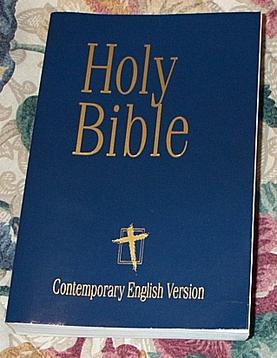
The Contemporary English Version or CEV is a translation of the Bible into English, published by the American Bible Society. An anglicized version was produced by the British and Foreign Bible Society, which includes metric measurements for the Commonwealth market.

The New Revised Standard Version (NRSV) is a translation of the Bible in contemporary English. Published in 1989 by the National Council of Churches, the NRSV was created by an ecumenical committee of scholars "comprising about thirty members". The NRSV relies on recently published critical editions of the original Hebrew, Aramaic, and Greek texts. A major revision, the New Revised Standard Version Updated Edition (NRSVue), was released in 2021.

The Gullah are a subgroup of the African American ethnic group, who predominantly live in the Lowcountry region of the U.S. states of South Carolina, North Carolina, Georgia, and Florida within the coastal plain and the Sea Islands. Their language and culture have preserved a significant influence of Africanisms as a result of their historical geographic isolation and the community's relation to their shared history and identity.

Modern English Bible translations consists of English Bible translations developed and published throughout the late modern period to the present.

The term Catholic Bible can be understood in two ways. More generally, it can refer to a Christian Bible that includes the whole 73-book canon recognized by the Catholic Church, including some of the deuterocanonical books of the Old Testament which are in the Greek Septuagint collection, but which are not present in the Hebrew Masoretic Text collection. More specifically, the term can refer to a version or translation of the Bible which is published with the Catholic Church's approval, in accordance with Catholic canon law.

There are two main translations of the Bible into Japanese widely in use today — the Japanese New Interconfessional Translation Bible (新共同訳聖書) and the New Revised Bible (新改訳聖書). The New Japanese Bible, published by the Organization for the New Japanese Bible Translation (新日本聖書刊行会) and distributed by Inochinokotoba-sha, aims to be a literal translation using modern Japanese, while the New Interconfessional Version, published by the Japan Bible Society, aims to be ecumenically used by all Christian denominations and must therefore conform to various theologies. Protestant Evangelicals most often use the New Japanese Bible, but the New Interconfessional Version is the most widely distributed and the one used by the Catholic Church, the United Church of Christ, Lutheran Church factions and many Anglicans in Japan.
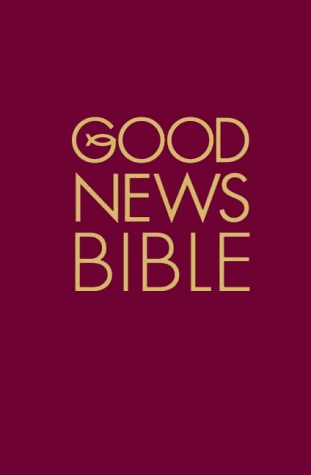
Good News Bible (GNB), also called the Good News Translation (GNT) in the United States, is an English translation of the Bible by the American Bible Society. It was first published as the New Testament under the name Good News for Modern Man in 1966. It was anglicised into British English by the British and Foreign Bible Society with the use of metric measurements for the Commonwealth market. It was formerly known as Today's English Version (TEV), but in 2001 was renamed the Good News Translation in the U.S., because the American Bible Society wished to improve the GNB's image as a translation where it had a public perception as a paraphrase. Despite the official terminology, it is still often referred to as the Good News Bible in the United States. It is a multi-denominational translation, with editions used by many Christian denominations. It is published by HarperCollins, a subsidiary of News Corp.
The Good News Study Bible is an edition of the Good News Bible with study Bible notes and articles.
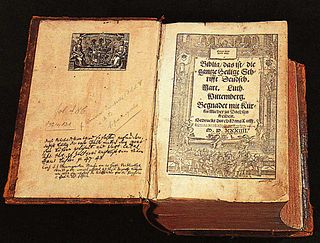
A Protestant Bible is a Christian Bible whose translation or revision was produced by Protestant Christians. Typically translated into a vernacular language, such Bibles comprise 39 books of the Old Testament and 27 books of the New Testament, for a total of 66 books. Some Protestants use Bibles which also include 14 additional books in a section known as the Apocrypha bringing the total to 80 books. This is in contrast with the 73 books of the Catholic Bible, which includes seven deuterocanonical books as a part of the Old Testament. The division between protocanonical and deuterocanonical books is not accepted by all Protestants who simply view books as being canonical or not and therefore classify books found in the Deuterocanon, along with other books, as part of the Apocrypha. Sometimes the term "Protestant Bible" is simply used as a shorthand for a bible which contains only the 66 books of the Old and New Testaments.
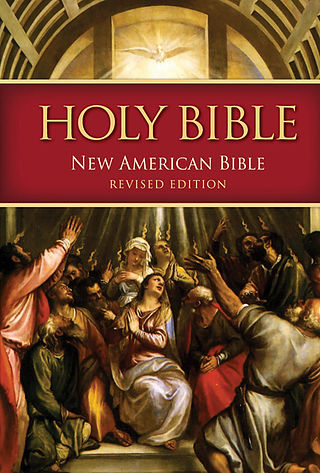
The New American Bible Revised Edition (NABRE) is an English-language Catholic translation of the Bible, the first major update in 20 years to the New American Bible (NAB), which was translated by members of the Catholic Biblical Association and originally published in 1970. Released on March 9, 2011, the NABRE consists of the 1986 revision of the NAB New Testament with a fully revised Old Testament approved by the United States Conference of Catholic Bishops in 2010.
Bible translations into Oceanic languages have a relatively closely related and recent history.
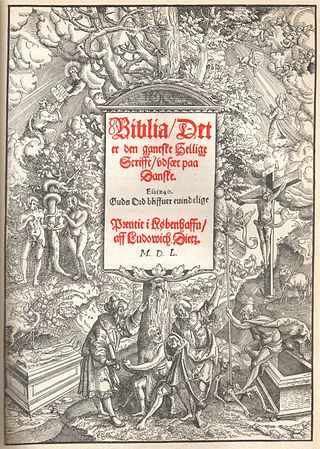
Bible translations in Norway date back to the late 13th century. Since the first spread of Christianity in Norway, numerous translations of the Bible have been published. Translations have appeared in several of the official languages that Norway has had throughout its history, including editions in Old Norse, Danish, and both current standard forms Nynorsk and Bokmål.